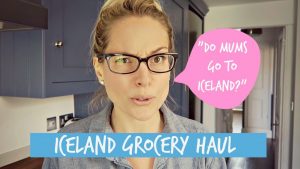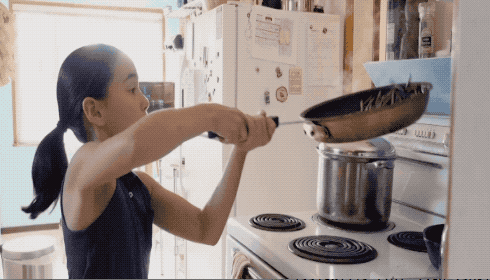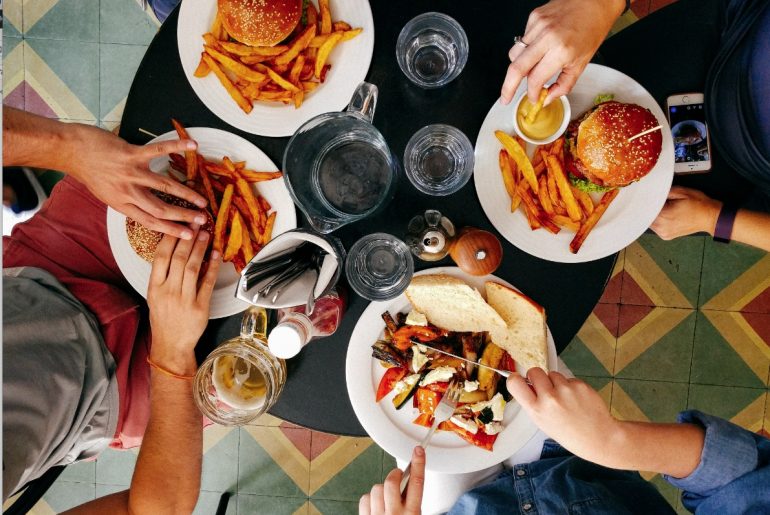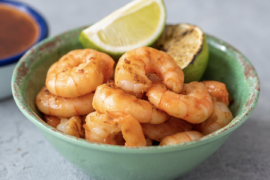Summer 2020 was all set for success for suppliers of frozen products to the foodservice sector in the United Kingdom, boosted in no small measure by Euro 2020 football competition and Games of the XXXII Olympiad viewed in pubs and parlors across the land. However, the disruptive novel coronavirus (SARS-CoV-2) pandemic and the strict restrictions the government has placed on Brits’ movements and the cancellation of public events has put a real spanner in the works for the foodservice sector, the retail trade has been lifted considerably.
Supermarket and grocery store operators and leading manufacturers have risen to the challenge, with many big brands simply abandoning or adapting their previous marketing strategies to adapt accordingly.
“We’ve made changes to our media and creative strategy to reflect the new normal,” explained Caspar Nelson, head of brand communications at the Iceland chain. “That means more emphasis on digital and social versus offline media as people spend more time at home, and a total focus on products and services that help families keep meal times exciting, varied and great value. As always, we’ve tried to keep our brand content lighthearted and entertaining.”
He added: “We’ve recently relaunched our partnership with Channel Mum. We’d worked with them before, and after a break last year we’ve decided to pick up where we left off. As a brand we over-index with female family shoppers so Channel Mum’s credibility as a content producer, and their reach as a publisher, make them a perfect partner for Iceland.”

Creating the Right Balance
Those brands that have chosen to evolve their marketing to fit the current climate and remain in the public’s minds are predicted to reap the rewards. According to Thinkbox, the marketing body commercial TV broadcasters in the UK, television has always played an integral role in bringing households together and that role had significantly increased since the beginning of the coronavirus lockdown, with TV providing a valued shared experience. In fact, according to data from the BARB (Broadcasters Audience Research Board), shared television viewing has grown by 37% since lockdown began, versus a 15% increase in watching TV alone.
Nelson says maintaining the Iceland brand presence in the current market is crucial to sales today and into the future.
“Overnight we moved from brand and product marketing to ‘service announcements’ at the start of this crisis,” he explained. “As people now settle into their new routines we’re looking to find ways to demonstrate that we are firmly on the side of families. While the media channel and the content might be different from what we had previously envisaged, we’re still showcasing how frozen food, and our broader product and service offering, can save our customers time and money – as we have done for nearly 50 years.”
Although people are watching more TV, brands have cut spending in order to avoid creating demand that simply cannot be met. At a time when panic bulk buying has been widespread it would not be appropriate for brands to encourage people to buy more.
Shifting with Changing Routines
Due to the restrictions put on the general public, routines have changed. This has resulted in households spending far more time together, with TV offering a collective distraction during tough times. It has also become an increasingly important part of everyday life for those who live alone.
Big brands have used this shift in media consumption to their advantage, as seen in McCain’s £8 million “reframe teatime” marketing campaign. Launched on April 6, it features real families in their own homes, with children roller-skating around the kitchen, dogs at the table, and eating on laps highlighting the togetherness of teatime.
Mark Hodge, the frozen potato products specialist’s marketing director, said: “McCain has been a family favorite for 50 years; not only do we know a few things about potatoes, but we also know a lot about family teatimes. We know that teatime has become a functional occasion; it’s busy, over in a flash and often goes by unappreciated. In reality, teatime is where much of the good stuff happens and the joy of teatime can be found at every table up and down the country.
“Our aim is to create excitement around teatime amongst new and existing shoppers. We are keen to help families across the UK appreciate the occasion, enjoy the good stuff and relish the simple joy of connecting over food as well as offering quality, value and convenience from our product portfolio.”
Nomad Foods’ Birds Eye brand is another frozen food giant that has chosen to abandon its plans in favour of a new and relevant “What’s for Tea?” campaign, which was pulled together in just 18 days. Instead of promoting individual products, an optimistic campaign was launched to show vignettes of families playing together, cooking, video-calling relatives and doing workouts in front of the television, to reflect real experiences.

Sarah Koppens, UK and Ireland marketing director, remarked: “At times of uncertainty consumers really appreciate having a consistent message and having brands they know and trust out there talking to them and saying, ‘Look, we were here before, we’re here during, we’ll be here after and we’re going to go through this with you.”
Adopting a reassuring tone has proved rewarding for brands that have maintained or increased their advertisement visibility during the pandemic. However, those that hold fire may have difficulty rebuilding their presence when recovery finally begins.
“Market share performance is related to share of voice,” pointed out Christian Polman, chief strategy officer at Ebiquity.
He advised brands to protect their equity by maintaining share of voice, playing the long game, reviewing short-term strategies, maintaining ad spending and planning for recovery when the economy and everyday life returns to normalcy.
Those in the know believe that brands that ride the Covid-19 storm by maintaining a media presence, offering comfort and a sense of unity through advertising, won’t be left high and dry. Time will tell. – Reported by Sarah Welsh





